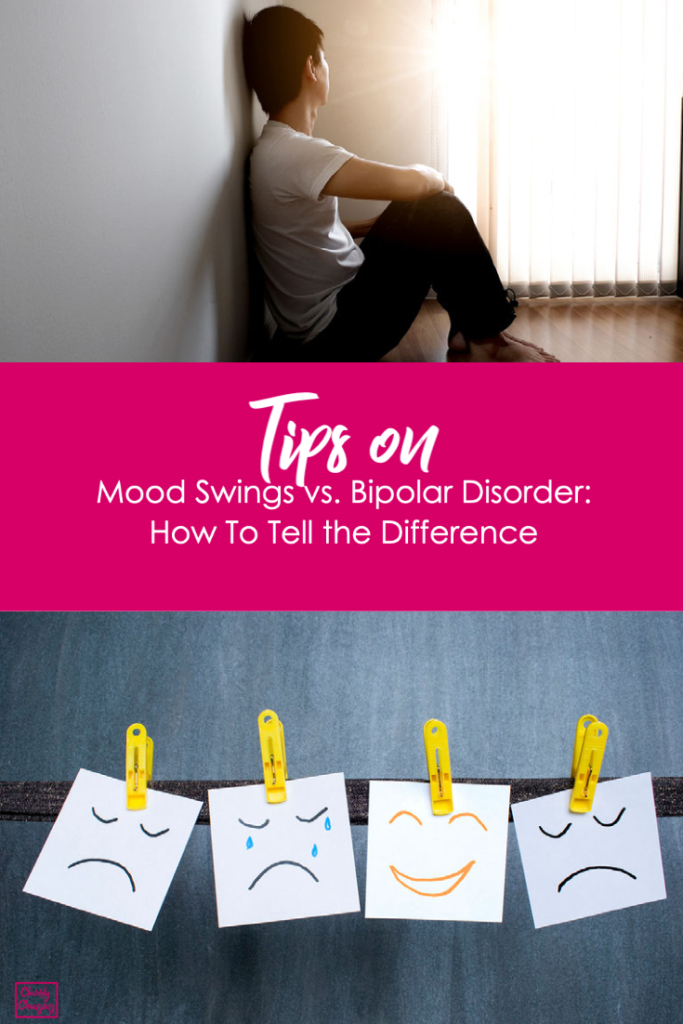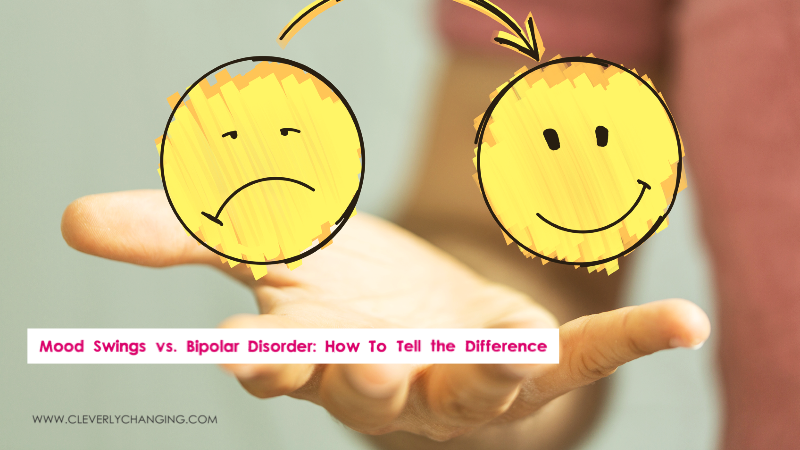Every person has mood swings at times. Many factors play a role in fluctuations in our emotions. It may simply be the person is having a bad day. However, there may come a time when these mood swings go beyond what every person experiences. An individual must know the difference between normal mood swings and those seen with bipolar disorder. Frankly, it can seem like there is a thin line between Mood Swings vs. Bipolar Disorder. Here are some tips on how they both are different.
Understanding the differences between the two conditions is critical. This understanding ensures the person receives the appropriate treatment. True Self Recovery provides the following basic overview of the two conditions, focusing on the duration, intensity, and impact on a person’s daily functioning.
Duration of the Mood Swings
One key distinction between mood swings and bipolar disorder is the duration of the mood episodes. Mood swings typically occur over a short period, lasting hours or a few days at most. They often result from external triggers, such as an argument or disappointment.
A person suffering from bipolar disorder will have prolonged mood episodes. These episodes might last for weeks, months, or even years. The episodes come with distinct phases. The person will have manic episodes characterized by heightened energy, euphoria, and impulsive behavior, and depressive episodes marked by low mood, lethargy, and feelings of hopelessness. A person will be able to see these are the result of bipolar disorder because they last longer and are more consistent.
Intensity of Mood Changes
Look at the intensity of the mood changes when trying to decide if a person struggles with mood swings or bipolar disorder. Mood swings are often intense and sudden, but they are not as extreme as those seen in bipolar disorder. Manic episodes, for instance, are characterized by an abnormally elevated mood, excessive self-confidence, racing thoughts, and reckless behavior. A person might experience delusions or hallucinations when they suffer from bipolar disorder.
When this individual enters the depressive stage of the illness, they may experience profound sadness. They often lose interest in preferred activities and struggle with changes in appetite and sleep patterns. Some people have suicidal thoughts. These intense shifts in mood and behavior are far beyond the scope of ordinary mood swings, indicating the presence of a more severe psychiatric condition.
Impact on Daily Functioning
Furthermore, the impact of mood swings and bipolar disorder on daily functioning is another critical aspect to consider. While mood swings may affect one’s mood momentarily, they typically do not impair overall functioning. Individuals experiencing mood swings can still carry out their daily activities, maintain relationships, and meet their responsibilities.
Bipolar disorder, on the other hand, significantly disrupts daily functioning during both manic and depressive episodes. Manic episodes can lead to impulsive and risky behavior, strained relationships, and difficulties in work or school. Depressive episodes can leave a person unable to concentrate. They have no motivation and become unproductive. Bipolar disorder can have a profound and lasting impact on an individual’s ability to lead a stable and fulfilling life.

How Can Someone Distinguish Between the Two?
To differentiate mood swings from bipolar disorder, it is important to consider the context, frequency, and severity of the mood fluctuations. If mood swings are occurring regularly, lasting for extended periods, and significantly impacting various aspects of life, it may be an indication of bipolar disorder. Seeking professional help from a mental health expert is crucial in order to obtain an accurate diagnosis and develop an appropriate treatment plan.
While mood swings and bipolar disorder share similarities in terms of emotional fluctuations, they differ in duration, intensity, and impact on daily functioning. Recognizing these differences is essential for understanding and addressing these conditions effectively. If a person is experiencing mood swings or suspects the presence of bipolar disorder, it is important to seek professional help to obtain a proper diagnosis and appropriate treatment. Mental health is a vital aspect of overall well-being, and addressing these conditions can lead to improved quality of life and increased stability.


